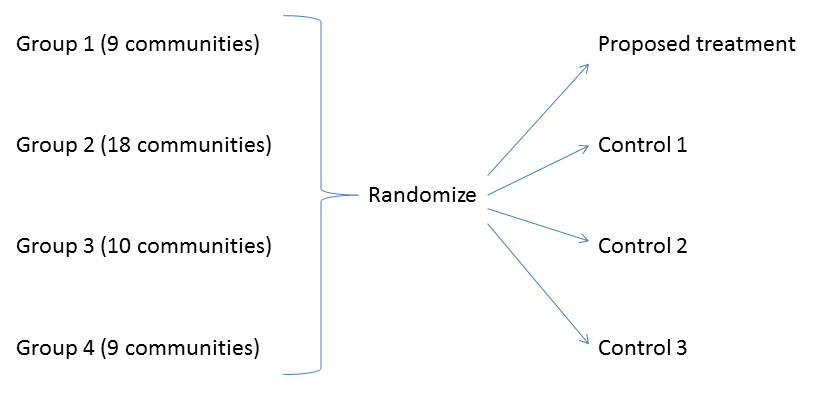Stuck at a pretty weird research design and would like to get some input on how to go about calculating power.
A researcher would like to randomize four groups into four different interventions (one of them being the proposed new standard, the other three are currently used practices), followed by comparing the magnitude of improvement in each intervention. The chart below shows the scheme. The four groups are randomized as a whole cluster (aka group and treatment do not cross). However, the communities within each group are not randomly chosen, but rather enlisted based on logistical reason. All eligible individuals within each community will be enrolled, and I do have the predicted number of participants in the community level. We have also come up with expected differences between the four interventions.

I am unsure on how to approach its power calculation. Particularly, does this design qualify as a multi-level model? What would be an ideal approach to calculate the power? Any comments/referral to other materials are welcome.
Many thanks.
